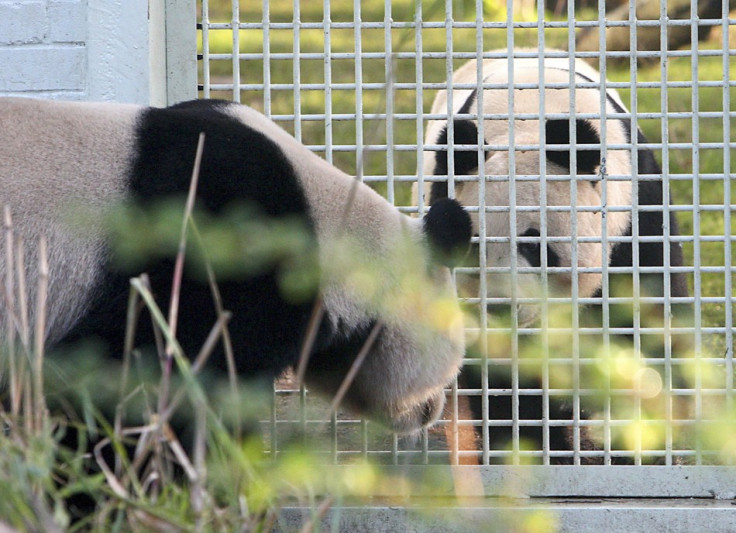How to Get Low-Libido Pandas to Make Babies

Pandas are notoriously bad at mating. So bad that the giant panda is now on the verge of extinction with just 1,600 left in the wild, according to the WWF.
As a result, China has developed an extensive breeding programme so they do not disappear altogether. But it is very hard work.
Male pandas only have 24 days per year when they are at their reproductive peak. On top of this, females only ovulate once per year, so to get these times to match in the wild is something of a shot in the dark.
Looking at ways to boost reproduction, Forbes Howie, Head of Specialised Assay Service at University of Edinburgh, said he spends a lot of time monitoring panda urine. Writing for the Conversation, Howie was involved in the pregnancy of Tian Tian at Edinburgh Zoo. After months, it emerged the panda for some reason had lost the foetus.
Trying to get her pregnant again, Howie said he believes she will start ovulating again in the very near future. However, working this out is problematic.

"Getting the urine is not easy," he said. "Tian Tian lives alone in a big cage. She has been trained to urinate in a particular place, which is a small den with a concrete floor that is indented to make it easier to collect samples.
"But probably because of the changes in her oestrogen levels, which is making her think about nesting, her normal behaviour patterns have gone askew. Like humans, she normally likes to pee first thing in the morning, but she doesn't seem to be doing that at the moment. She's also not drinking as much as usual, so she's not peeing as much. And she has started to pee outside her den, on earth and grass."
Her moody ways also pose problems: "They look cuddly, but the keepers warned me not to put my arms through the bars because they could quite easily take your arm off. This makes it harder to collect those urine samples. If she pees in the wrong place and doesn't move away, the sample soaks into the earth and is lost."

If placed together in the zoo, Tian Tian and her partner Yang Guang would fight, so they can only be united once both are in the mood.
After mating, the keepers must work out if she has become pregnant. Again, problems arise due to pseudo-pregnancies common in pandas. Explaining what he and staff at Edinburgh Zoo will now face, he wrote: "We are going to work on various ideas to see whether we can come up with a pregnancy test.
"It's too early to go into detail about the techniques that we will use, but it will involve looking at certain different steroids and proteins and making comparisons with samples of pregnant pandas from other zoos around the world."
Howie said they will only know if Tian Tian is pregnant in the autumn: "In the meantime, all we do is focus on our daily laboratory results. It won't guarantee a panda cub later this year, but it will certainly give us the best possible chance."
© Copyright IBTimes 2025. All rights reserved.






















